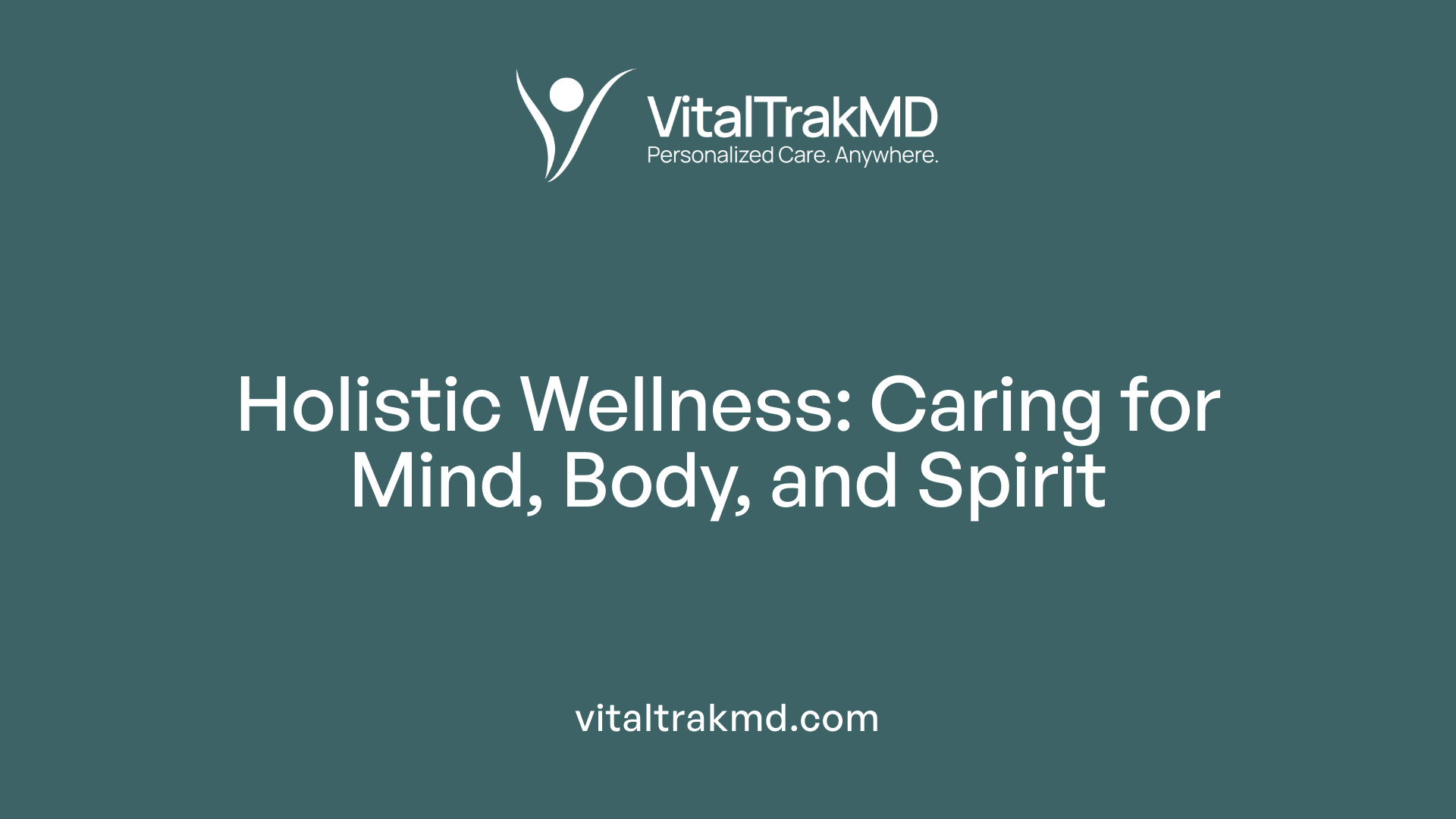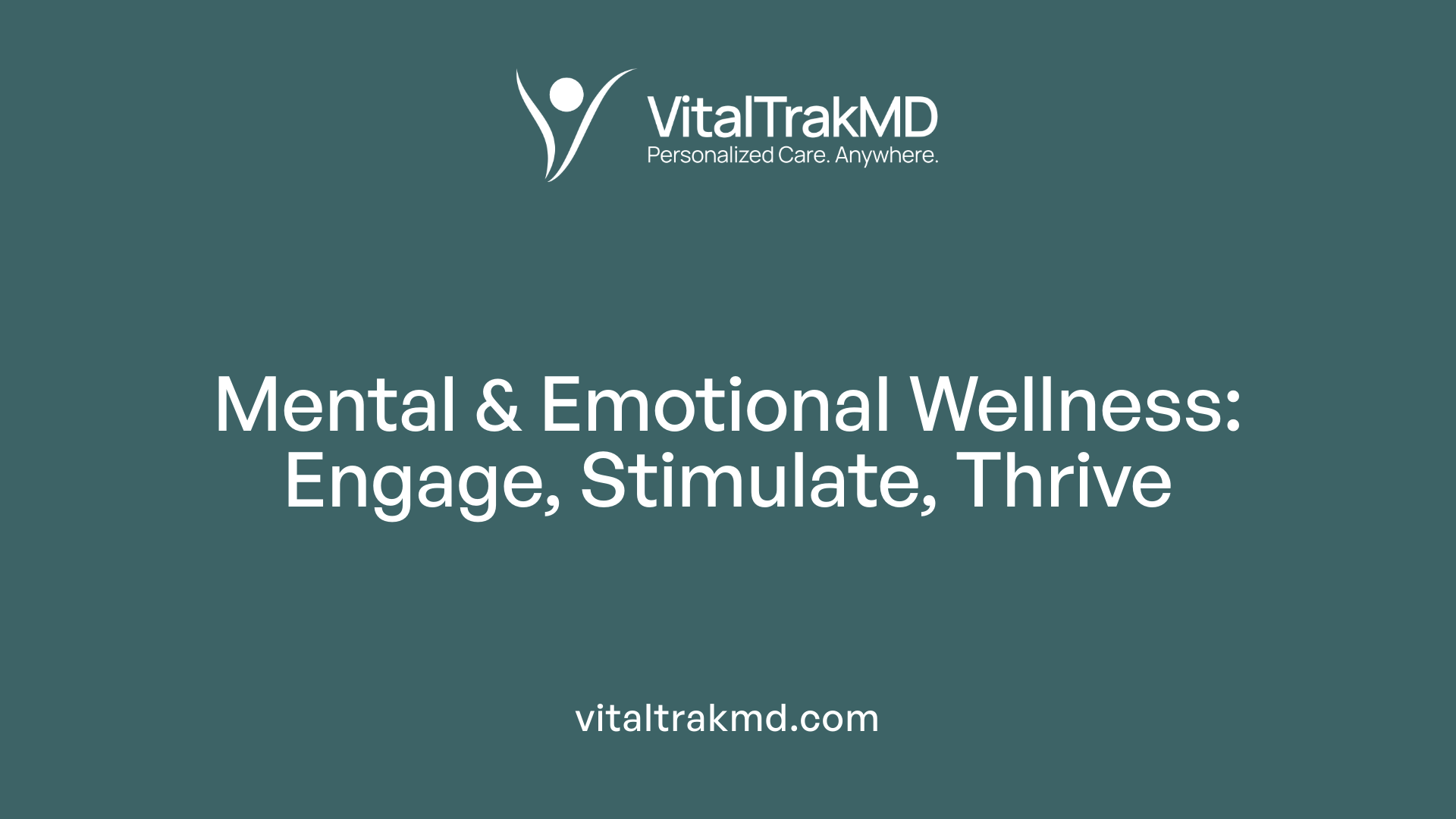The Importance of Routine in Hybrid Senior Wellness Programs

Understanding the Role of Routine in Senior Wellness
Senior wellness programs have evolved into comprehensive, holistic approaches designed to enhance quality of life, maintain independence, and promote longevity. Central to their effectiveness is the incorporation of structured daily routines that blend physical, mental, nutritional, and social activities. This narrative explores why routine matters deeply in hybrid senior wellness programs and how it underpins the broad benefits these programs provide.
The Holistic Foundation of Senior Wellness Programs

What is the holistic approach in wellness programs?
Senior wellness programs embrace a holistic strategy that nurtures multiple facets of well-being. These programs address not only physical health but also emotional, intellectual, social, environmental, spiritual, and vocational wellness. This all-encompassing approach ensures that seniors receive balanced care that enhances their overall quality of life.
How does physical fitness cater specifically to seniors?
Physical fitness activities are carefully tailored to meet the unique needs of seniors. Low-impact exercises, strength training, balance exercises, yoga, Tai Chi, and walking groups promote mobility, muscle strength, and joint flexibility. These activities effectively reduce the risk of falls and support cardiovascular health, helping seniors maintain their independence.
How are nutrition and mental health integrated?
Nutrition plays a vital role alongside mental health support within these programs. Personalized meal plans and nutritional education help boost immune function and brain health. Concurrently, mental stimulation activities like brain games, meditation, puzzles, and lifelong learning are incorporated to slow cognitive decline, manage stress, and foster emotional well-being.
Why is social connection important?
Social engagement is a core element connecting all parts of senior wellness. Programs offer group activities, social events, and counseling to build friendships and reduce feelings of loneliness. Strong social networks enhance emotional health, decrease risks of depression, and contribute to a supportive community where seniors feel valued and connected.
Physical Activity and the Power of Routine for Mobility and Health

What Low-Impact Exercises Are Suitable for Seniors?
Low-impact exercises such as walking, water aerobics, yoga, and Tai Chi are excellent choices for seniors. These activities minimize strain on joints while promoting cardiovascular health and enhancing mobility.
How Do Strength Training and Balance Exercises Help Seniors?
Strength training and balance exercises are crucial for maintaining muscle mass and improving stability. Programs tailored for seniors often include activities like light weightlifting and balance drills, which help prevent falls by enhancing muscle strength and coordination.
How Does Routine Exercise Contribute to Fall Prevention?
Consistent, routine exercise helps sustain joint flexibility, muscle tone, and balance, significantly reducing the risk of falls among seniors. Regular participation in strength and balance classes fortifies the body, supporting safer daily movement and greater confidence.
What Are the Benefits of Yoga, Walking, and Tai Chi for Seniors?
Yoga promotes flexibility, stress relief, and mental focus; walking boosts cardiovascular health and endurance; Tai Chi improves balance and coordination. Together, these exercises enhance physical health, support mental well-being, and help seniors maintain independence.
Incorporating these activities into daily routines fosters holistic wellness by enhancing physical capabilities, preventing injuries, and contributing to prolonged health and vitality among older adults.
Mental Stimulation and Emotional Well-being Through Consistent Engagement

How do brain games and cognitive activities benefit seniors?
Brain games, puzzles, trivia, and storytelling are commonly featured in senior wellness programs to stimulate cognitive function and enhance memory retention. These activities challenge the mind, helping to slow cognitive decline and keep aging brains sharp. Educational workshops and lifelong learning opportunities further enrich intellectual engagement, supporting mental health and encouraging continuous growth.
What role does meditation and stress management play in senior wellness?
Meditation and stress relief practices such as guided meditation and group discussions are important components of emotional well-being in seniors. These techniques help manage anxiety and stress, promote relaxation, and support mental clarity. Consistent practice fosters calmness, reduces depression risks, and complements physical health benefits.
How does routine participation affect emotional health?
Participating regularly in wellness activities and maintaining daily routines offers seniors a sense of purpose, stability, and control over their lives. Routine involvement in gardening, volunteering, or attending classes helps reduce feelings of loneliness and anxiety. These structured schedules engage multiple dimensions of wellness—physical, social, and emotional—thus improving overall quality of life.
Why is creative expression included in wellness programs?
Creative outlets such as art, music, dance, and writing provide vital emotional release, reduce stress, and increase happiness among seniors. These activities foster self-expression and social connection, enriching emotional health and supporting resilience in facing age-related challenges.
Engaging consistently in mental and emotional wellness activities not only preserves cognitive health but also promotes a joyful, connected, and meaningful lifestyle for seniors.
Social Engagement and Community Building as Routine Pillars

How do social programs impact loneliness among seniors?
Social programs in senior living communities significantly reduce loneliness by fostering connections and creating a sense of belonging. Group activities, hobby clubs, and social events encourage residents to interact regularly, combating isolation and promoting emotional well-being. This ongoing social involvement helps decrease feelings of loneliness and prevents the negative mental health effects often linked to isolation.
What types of group activities and social events support senior engagement?
Activities like fitness classes, games, bridge groups, wine tastings, and arts and crafts provide varied opportunities for seniors to connect with others. Hobby clubs tailored to residents’ interests nurture friendships while contributing to a vibrant community atmosphere. Spiritual gatherings and volunteering opportunities also enhance social bonds by aligning with personal values and encouraging purposeful interactions.
Why is routine social interaction important for seniors?
Regular social engagement offers consistency and stability that support emotional health. Structured routines incorporating social activities promote a sense of control and purpose, reducing anxiety and improving overall mood. These consistent interactions also bolster cognitive function by stimulating conversation and mental involvement.
How do community activities help reduce depression among older adults?
Participation in community and social programs elevates mood and fosters a supportive environment that lowers the risk of depression. Group settings provide emotional support and reduce feelings of isolation. Moreover, social engagement increases immunity and resilience against stress, contributing to better mental health outcomes.
Overall, integrating social engagement into daily routines is essential in senior wellness programs. It fosters emotional well-being, combats loneliness, enriches life quality, and nurtures a connected, supportive community among older adults.
Routine as the Gateway to Independence and Quality of Life

How Do Daily Schedules Promote Purpose and Control for Seniors?
Establishing structured daily routines in senior living environments offers residents a vital sense of purpose and control. Activities such as gardening, volunteering, and attending educational classes provide meaningful engagement, supporting emotional health by combating anxiety, stress, and loneliness. These routines help seniors maintain a stable lifestyle, which is essential for fostering confidence and motivation to carry out daily tasks independently.
In What Ways Do Nutrition Routines Improve Health and Sleep?
Consistent nutrition routines, including personalized meal plans and nutritional education, play a crucial role in supporting immune function, maintaining a healthy weight, and boosting brain health. Furthermore, well-balanced diets combined with scheduled rest contribute to improving sleep quality. Good sleep hygiene combined with physical activity promotes restorative rest, increasing overall wellness and energy levels for daily activities.
Can Wellness Routines Be Cost-effective for Senior Living Communities?
Implementing wellness routines benefits both residents and facilities financially. By focusing on regular exercise, nutrition, mental stimulation, and preventive healthcare, these programs reduce doctor visits, emergency room admissions, falls, and hospitalizations. A documented case revealed a 24% increase in community occupancy and a 55% reduction in move-out rates, illustrating that investing in structured wellness routines is a cost-effective strategy for sustainable senior care.
How Do Routines Support Longevity and Autonomy?
Regular schedules incorporating physical activities like yoga, water aerobics, and walking help seniors maintain muscle mass, joint flexibility, and cardiovascular health, directly contributing to longevity. Cognitive stimulation through puzzles and educational workshops slows cognitive decline, preserving mental acuity and independence. The consistent structure encourages seniors to perform daily activities with confidence, maintaining autonomy and enhancing quality of life over time.
The Lasting Impact of Wellness Routines in Senior Care
Routine forms the backbone of effective hybrid senior wellness programs, providing structure that nurtures physical health, sharpens the mind, fosters emotional resilience, and strengthens social bonds. This structured approach not only reduces healthcare costs and helps manage chronic conditions but also empowers seniors to sustain independence and enjoy enriched, purposeful lives. By embracing consistent wellness activities, senior communities can offer residents a holistic environment where well-being thrives, proving that the importance of routine goes far beyond habit—it is a vital ingredient for longevity and quality of life in senior living.
References
- The Importance Of Health And Wellness Programs In ...
- Benefits of Senior Wellness Programs
- Why Wellness Programs Are Important In Assisted Living ...
- Importance of Wellness Programs | Senior Living | 2025
- Senior Wellness – Breaking Down the Benefits
- The Role of Daily Routines for Seniors in Creating Stability ...
Recent articles
Want to Feel Better and Live Healthier?
Join hundreds of patients taking control of their health with personalized care that fits their life – not the other way around.
Rated 4.8/5 by 32+ customers







